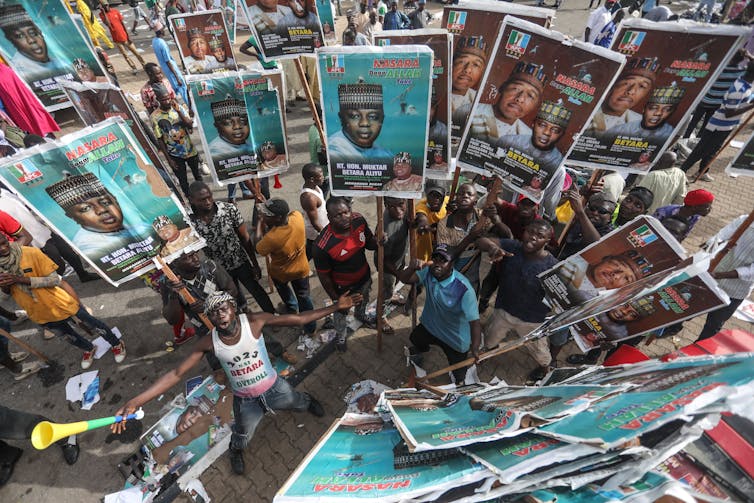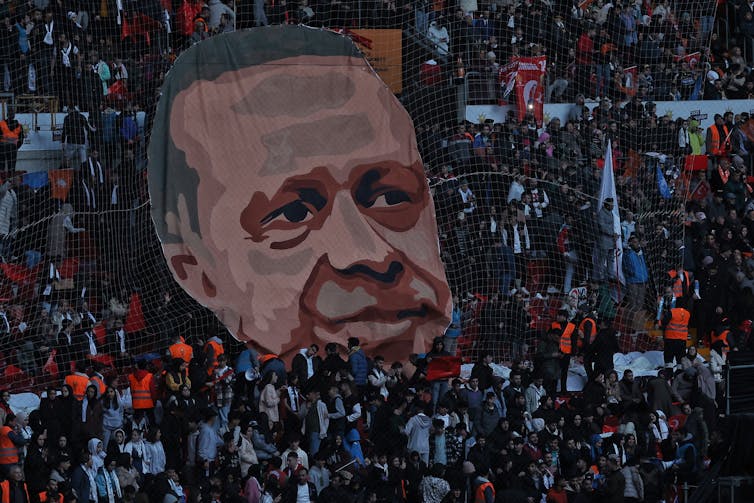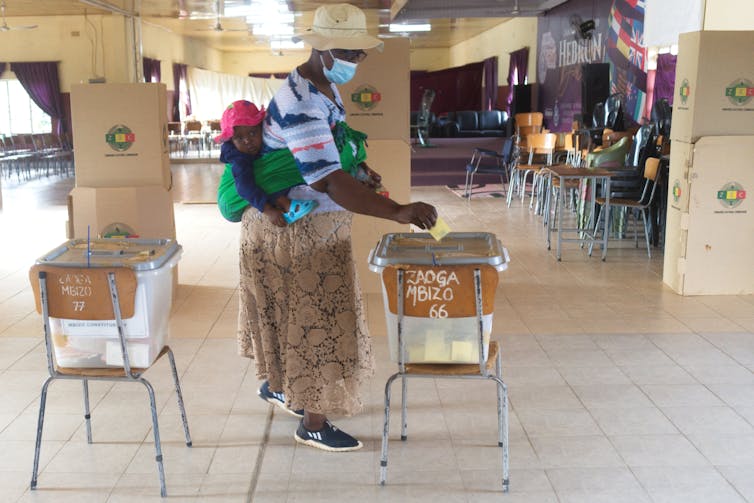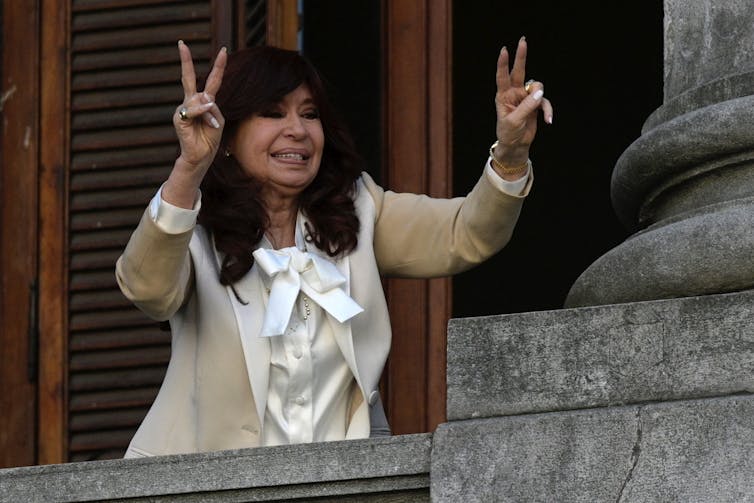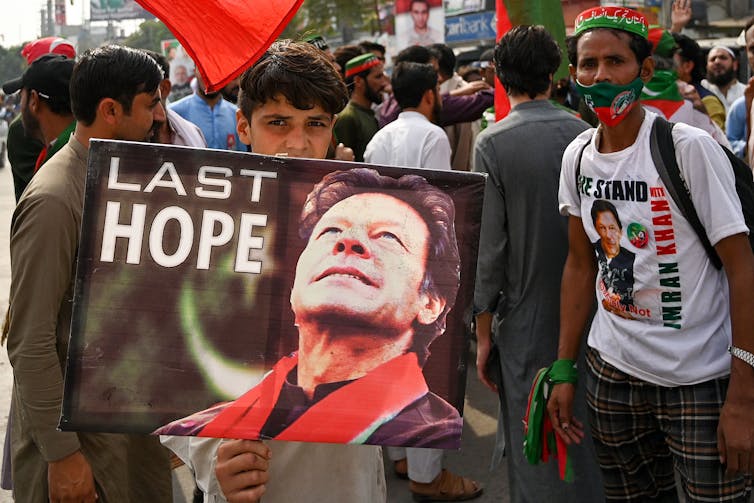Earthquake aftermath imperiling Recep Tayyip Erdoğan's grip on power
The earthquake that struck Turkey on Feb. 6, 2023, is first and foremost a human tragedy, one that has taken the lives of at least 45,000 people to date.
The disaster also has major implications for the country’s economy – the financial loss from the damage is estimated to be US$84 billion – and its politics.
Analyzing this human tragedy and its long-term implications for Turkey is difficult for me. I am a scholar of Turkish politics. But I also grew up in the affected region and lost relatives and friends in the cities of Antakya and Iskenderun. Nevertheless, I believe it is important to examine the implications of the earthquake on Turkey’s President Recep Tayyip Erdoğan – not for reasons of political intrigue, but because it is crucial in determining how Turkey recovers from the disaster and better prepares itself in the future.
President Erdoğan deflects blame
Turkey’s presidential and parliamentary elections are due to take place in June 2023. Erdoğan had a declining popularity even before the earthquake, due in part to an economic crisis and growing popular concern over his autocratic style of governance, especially among younger voters.
Erdoğan has been at pains to mitigate any political fallout from the earthquake and deflect any blame. His Justice and Development Party, AKP, the media under his control, and the government agency running mosques, called the Diyanet, were quick to define the earthquake as “the disaster of the century.” The implication is that Erdoğan couldn’t have done anything to avoid the extent of the human cost.
Erdoğan himself, while surveying the damage caused, announced that it was “not possible to be prepared for such a disaster.” He also called it “destiny.”
Yet critics have not been convinced. Analysts have held Erdoğan’s highly centralized one-man rule responsible for both the lack of sufficient preparations before the earthquake and the failure to provide coordinated help after it.
Lack of preparation and coordination
Certainly, Erdoğan’s record makes him vulnerable to claims of culpability over the scale of destruction.
Over the past 20 years, Erdoğan prioritized construction as a motor of economic growth. Initially during his time in office, bureaucratic and nongovernmental institutions tried to regulate the construction sector, mindful of the devastating 1999 earthquake in the country’s northwest that killed over 17,000 people.
Yet after 2017 constitutional amendments, Erdoğan established a new presidential regime with almost no checks and balances. He hollowed out bureaucratic institutions, placed loyalists in key positions and enriched crony contractors. He did not impose necessary construction regulations. Instead, he gave amnesty to the owners of millions of faulty buildings as part of a populist policy that also raised taxation. After the earthquake, videos of the president bragging about this “amnesty” went viral.
Erdoğan’s administration has also faced allegations of being too slow and disorganized to coordinate the rescue operations after the earthquake.
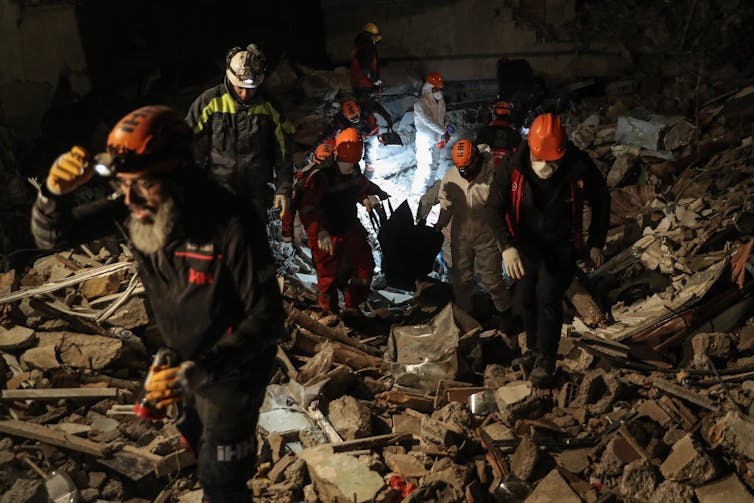
The grim search for bodies continues.
The centralized system has been held responsible by both opposition parties and foreign observers for what is seen as a very ineffective response on the crucial first day after the earthquake. Critics have asked, for example, why Erdoğan did not allow the armed forces to join the rescue operations as soon as the scale of the disaster was clear.
Despite Erdoğan’s heavy control over the media, these criticisms have been widely shared in Turkey on both social media and among the opposition parties and activists.
Erdoğan has responded by temporarily blocking access to Twitter and publicly announcing that he was writing down the critics “into his notebook” to prosecute them later.
But this has done little to stem the anger directed at the president.
In power since 2003, Erdoğan has developed a reputation as an autocrat, prone to stifling dissent rather than engaging with critics. In the minds of many political observers, he is unlikely to transform his political attitudes now.
As such, the opposition is now calling on the Turkish electorate to choose a new leadership that can better prepare the country for future earthquakes.
Will Erdoğan cancel elections?
Erdoğan’s party appears concerned that popular anger over handling of the disaster may affect the upcoming elections.
Bülent Arınç, an AKP founder and former speaker of Turkish Parliament, publicly called for the postponement of elections for a year. The Turkish Constitution, however, allows the postponement of elections only during a war. Hence, Arınç defined the Constitution “not sacred” and called for disregarding it.
Erdoğan has a major dilemma. If he allows the elections to take place as planned in June 2023, he is likely to lose them. Even before the earthquake, polling suggested that he would lose against one of three possible competitors in the presidential race.
Before the earthquake, Turkey was already experiencing a major economic crisis, with an annual inflation rate running above 80% in the past six months. Six opposition parties – including those founded by a former AKP prime minister and a former AKP vice prime minister – have established an alliance against Erdoğan.
For all these reasons, Erdoğan may find the idea of postponing the elections beneficial, even if it is unconstitutional.
Yet Erdoğan does not know where these multiple economic and political problems are heading – they could worsen into next year. As such, postponing the elections is risky.
Either way, going forward, Erdoğan will likely find it harder to keep his political hegemony. His grip on power was already under threat, even before the earthquake.![]()
Ahmet T. Kuru, Professor of Political Science, San Diego State University
This article is republished from The Conversation under a Creative Commons license. Read the original article.
- How authoritarians, despots and 'autocrats' are prevailing all over the world: journalist ›
- A Middle-East Expert Explains: Erdogan Has Used Same Techniques as Trump to De-Democratize Turkey ›
- Over 1,600 dead after massive twin earthquakes rock Syria and Turkey ›
- 'Bowing down to a dictatorship': Turkish-American NBA star shreds Elon Musk over Twitter censorship - Alternet.org ›

